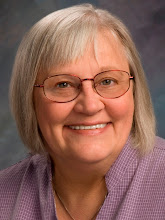 That's all it took for the office of one member of Congress to sit up and pay attention to an issue of concern among constituents. Seven people took the time to write a letter—not an email—and an aide to the Congressman remembered them.
That's all it took for the office of one member of Congress to sit up and pay attention to an issue of concern among constituents. Seven people took the time to write a letter—not an email—and an aide to the Congressman remembered them.That's truly amazing. Annie Gill-Bloyer, who is the faith outreach organizer for the ONE Campaign, met with the aide to discuss the goals of ONE and the non-profit she works for, Bread for the World. The aide recalled having received a "number" of letters about the ONE effort ("the campaign to make poverty history"). When Annie asked how many exactly, the aide replied, "Oh...seven," in a manner that suggested this was a significant amount. Annie was stunned; that's all it took to get noticed? Seven letters?
Annie's experience reflects the ever-shifting realities of our 21st century
 existence. I'll bet good money that one handwritten letter is remembered long after those useless Internet petitions have evaporated into cyberspace. (Is there anyone left who actually believes that an Internet petition does any good—or is even opened? They're not worth, um, the paper they're printed on.) Letters—especially those that are handwritten and not printed out or photocopied—have got to be such a rarity these days that it makes sense that they'd get noticed.
existence. I'll bet good money that one handwritten letter is remembered long after those useless Internet petitions have evaporated into cyberspace. (Is there anyone left who actually believes that an Internet petition does any good—or is even opened? They're not worth, um, the paper they're printed on.) Letters—especially those that are handwritten and not printed out or photocopied—have got to be such a rarity these days that it makes sense that they'd get noticed.This should be good news to independents who want to let their concerns be known. We're so all-fired ornery that we might just feel compelled to unearth the stationery, hunt down some—what are they called? Oh, that's right—stamps, and teach our dominant hand to hold a pen once again. I know, I know, it's so 20th century, but if getting noticed requires a return to the olden days, I'll go there. A few minutes practicing my very best Palmer penmanship, and a letter will be as good as written.




